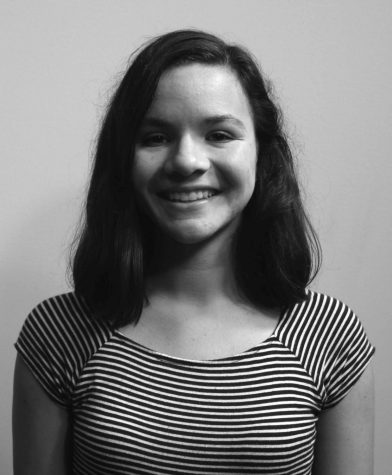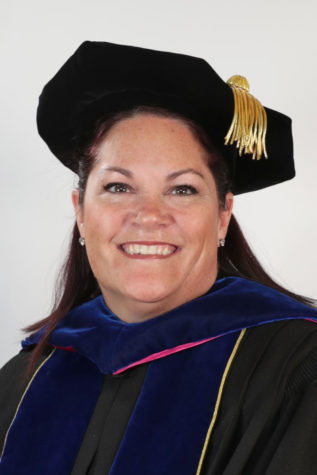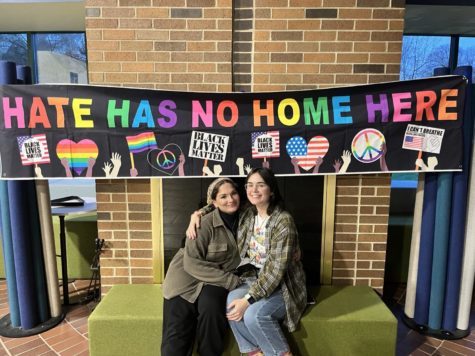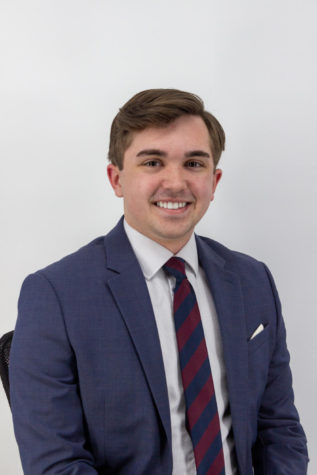Lakers present at religion conference
April 30, 2019
On April 12-14, three students and a professor traveled to Montreal to present at the Eastern International Regional (EIR) conference of the American Academy of Religion.
The EIR conference primarily focuses on graduate and professional scholarship, but in recent years has added an undergraduate panel to encourage undergraduate scholarship and growth in the field.
“The conference gives them experience in the field not only creating and presenting a sustained argument, but also in learning how to have focused conversations on their particular research,” Verna Ehret, Ph.D., associate professor of Religious Studies, said.
The theme for the conference this year was Religion in Harm and Healing.
The three students that attended the conference took Ehret’s Evolving religion class with similar themes.
The students applied for the conference as a single panel on Evolving Religion in Harm and Healing.
Once their abstracts were accepted by conference organizers the students worked to turn their papers in 15 minute presentations.
“Learning to present and then to listen to and engage the presentations of others is essential in the field,” Ehret said.
Katelin Snaeble, senior Religious Studies and Social Work major, presented her work on Religious Understanding in the Healthcare Field.
“I discussed the significant impact that spirituality and religion can have in a person’s life and the meaning making that can come from it,” she said.
“I also touched upon how medical staff need to be conscious and trained about these spiritual standpoints and make an effort of meeting people where they are in their medical journeys,” Snaeble said. “There are a wide variety of cultural and ethical differences that need to be considered when communicating and working with people,” Snaeble said.
Vincent Marrazzo, a senior Intelligence Studies, Information Technology & Religion, Diplomacy and International Relations major, presented his work on the intersection of politics and religion within the United States.
“The experience was amazing. I really enjoyed having the opportunity to present my research to a group of religion scholars, and visiting Montreal was great too,” Marrazzo said.
The third student, Christian Copper, a senior Intelligence Studies and Religious Studies major, presented his senior thesis on the relationship between religion and terrorist organizations.
“When I had first learned that I was going to speak, I was through the roof with excitement,” Copper said. “I was going to see firsthand where my field of study happens, and have the ability to meet scholars whose books and articles I have read. Overall, this experience will be something I look fondly back on for years to come.”
The conference provided a great opportunity for the students to show off their presentation skills and present their topics in front of scholars in their field.
When not at the conference, the students had the chance to explore Montreal and spend some time together outside of an academic setting. They ate local food, walked the city and saw its Botanical Gardens.
The actual presentation brought both nerves and opportunity for the students.
“I was very nervous as a fledgling scholar of religion speaking on a controversial subject. However, Dr. Ehret and the Religious Studies department did a fantastic job at preparing me for the questions and culture of the meetings. Being able to dialogue with experts in various fields was an incredible experience, and I owe it to my professors who prepared me so well,” Copper said.
Ehret reiterated this point of view.
“Their projects were carefully organized and argued and dealing with timely issues. They all had carefully rehearsed their presentations and knew their material very well. They each handled difficult questions thoughtfully and with tremendous grace. I was so very impressed with them,” Ehret said.
“My favorite part of the trip was shockingly the eight-hour car rides. It was nice to talk with one another about an array of different subjects and learn about each other outside of the classroom,” Snable said.








